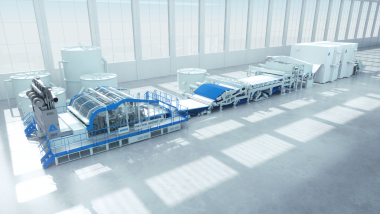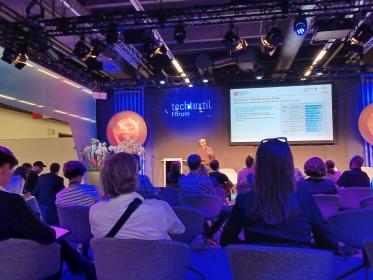OETI: 55 years of testing, certifying, accreditation and notification
As an accredited testing and certification body, the “OETI - Institut fuer Oekologie, Technik und Innovation GmbH“ (OETI for short) has been successfully responding to prevailing market requirements for 55 years and, in the process, has made a name for itself worldwide. To mark its anniversary, this international centre of excellence with its origins in Austria is taking a look back at the most important milestones in its history as well as providing interesting insights into future developments.
As renowned flooring manufacturers founded the Austrian Carpet Institute on 25th of September 1967, no one could have imagined how successful the company would become. But even back then, one thing was clear to the experts: the need to establish a carpet research and testing centre in the form of an association. Today, over five decades later, OETI is a testing and certification services provider for OEKO-TEX® certificates and labels, textiles, leather, due diligence along the textile and leather supply chain as well as for personal protective equipment (PPE), flooring technology, furnishings and indoor air quality.
In 1992, OETI was a founding member of the ‘International OEKO-TEX® Association for Research and Testing in the Field of Textile and Leather Ecology’ with independent certifications and product labels. Ever since, OEKO-TEX® has enabled companies along the textile and leather supply chain and every consumer to make responsible decisions for safe, environmentally friendly and fairly manufactured products.
In line with its focus on sustainability, OETI and its Swiss parent company, TESTEX AG, wanted to build the new OETI headquarters using low energy construction techniques and ensure its carbon-neutral operation. To achieve these goals, the highest possible thermal insulation and energy optimisation standards were applied, while the carbon-neutral power supply is generated by its in-house photovoltaics system as well as domestic renewable energy.
The new headquarters, which the company moved into in 2021, provides space for 75 employees over 2,500m2 and boasts bright and perfectly equipped office areas. The laboratory areas, the analytical/chemical laboratory and the physical / fire laboratory were also designed based on the latest methods and technologies. This makes OETI, alongside its Swiss parent company TESTEX, the second fully fledged laboratory site in the entire, global TESTEX Group.































